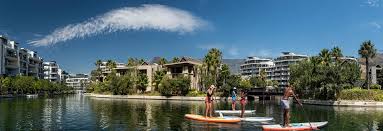
Tourism Project On Cape Town For CBSE Class 12th
Acknowledgment:
I would like to express my sincere gratitude to everyone who helped this tourist project on Cape Town for the CBSE Class [insert class name here] be completed successfully.
I would want to thank my school, teachers, and principal first and foremost for giving me the chance to take on this project and broaden my knowledge outside of the classroom. Their leadership and assistance have been crucial in forming this project.
I would like to express my sincere gratitude to [Name of Subject Teacher] for their invaluable guidance, ongoing encouragement, and constructive criticism throughout the project. Their expert opinions, thoughts, and suggestions were crucial in raising the quality of this work.
The library staff and online resources for giving me access to numerous research materials and books that have been helpful in gathering knowledge and statistics on Cape Town are other sources I am grateful for.
I really appreciate the support, understanding, and inspiration provided by my parents and other family members during my endeavour. Their confidence in me has served as a continual source of motivation.
Finally, I would like to thank the residents of Cape Town and the tourist authorities for sharing their knowledge and views on the cultural history, landmarks, and attractions of the city.
I owe everyone who participated in this project and helped to see it through to completion. I appreciate your help and encouragement.
Introduction:
The city of Cape Town, which is renowned for its breathtaking beauty and cultural diversity, is a jewel in the centre of South Africa. This alluring location, nestled between the majestic Table Mountain and the glittering Atlantic Ocean, has long drawn tourists from all over the world. As one of the most sought-after tourist destinations on the African continent, Cape Town has earned its place thanks to its rich history, lively culture, and abundance of natural wonders.
We go on a journey to explore the captivating city of Cape Town in this tourism project, learning about its geographical features, historical significance, cultural heritage, and a variety of unique attractions that make it a must-visit site. Cape Town offers a kaleidoscope of experiences that cater to every traveler’s desires, from famous sites to adventurous activities and mouthwatering cuisine.
We will take a closer look at the key tourist destinations, the fascinating history of the city, the blending of many cultures, and the efforts made to promote sustainable tourism throughout this project. Additionally, for those preparing to go on their own adventure to Cape Town, we will provide pertinent information regarding lodging, transportation, and essential travel advice.
Join us as we unravel Cape Town’s allure, a place where the past and present collide, where nature’s wonders embrace the metropolitan landscape, and where warmth and generosity welcome tourists with open arms. Let’s start exploring Cape Town’s splendour, enchantment, and enduring appeal.

geographic characteristics:
The diversity and beauty of Cape Town’s landscape, which includes a variety of natural wonders, contributes to its appeal as a top tourist destination. Here are some of the key geographic characteristics that make Cape Town so distinctive:
- Mountain Tabular:The distinctive flat-topped peak of Tabl Mountain dominates the city’s skyline, making it without a doubt the most recognisable feature in Cape Town. Visitors may either walk or take the Tabl Mountain Aerial Cablway to the peak of the mountain, which is a prominent feature of the Tabl Mountain National Park. One may enjoy breathtaking panoramic views of the city, coastline, and neighbouring landscapes from the summit.
- the Cape PeninsulaThe location of Cape Town lies on the Cape Peninsula, a small peninsula that extends south of the city. The Atlantic Ocean on the west and the Indian Ocean on the east both encircle the peninsula. It is well-known for its stunning coastline scenery, which includes rugged cliffs, isolated beaches, and picturesque bays like Hout Bay and False Bay.
- Coastal Good Hope:The Cape of Good Hope is a notable geographical feature and is situated in the Tabl Mountain National Park at the southernmost point of the Cape Peninsula. Despite being sometimes mistaken for being the southernmost point of Africa (Cape Agulhas), it is nevertheless a significant location where the Atlantic and Indian oceans meet. Explore Cape Point and take in the scenic beauty and wild life of the surrounding reserve.
- Beaches:Cape Town is home to a variety of beautiful beaches that cater to different tastes. White sands, clear water, and a fashionable atmosphere make Clifton and Camps Bay beaches renowned. On the other side, Muizenberg Beach is well-known for its vibrant beach huts and is a well-liked location for surfing.
- Island of Robben:Robben Island, albeit not a natural feature, is important to the geography and history of Cape Town. This island, which lies roughly 7 kilometres off the shore, served as a political jail during the apartheid era, detaining prominent anti-apartheid dissidents like Nelson Mandla. It is now a UNESCO World Heritage Site and is accessible via guided excursions.
- Winelands:A short distance from Cape Town, the Cape Winelands provide a breathtaking landscape of vineyards, mountains, and ancient towns like Stellenbosch and Franschhoek. The region is a well-liked destination for wine tasting and gastronomic experiences since it produces some of South Africa’s finest wines.
- Parks and Gardens:Beautiful gardens and parks cover Cape Town, adding to its allure. A renowned botanical paradise featuring exotic plants, Kirstenbosch National Botanical Garden is located at the eastern foot of Table Mountain. Aside from Green Point Park and Company’s Garden, there are other green areas that provide peaceful retreats from the busy metropolis.The geographic features of Cape Town not only provide a picturesque backdrop for tourists, but they also support a variety of outdoor pursuits and recreational opportunities, making it a haven for both nature lovers and adventure seekers.
Climate:
The climate of Cape Town is Mediterranean, with moderate, wet winters and warm, dry summers. The city’s position along the coast and the nearby ocean currents have a significant impact on the climate. Here is a breakdown of Cape Town’s weather throughout the course of the year:
Winter (December through February):
The summer season in Cape Town runs from December to February.
The city has mild, dry weather at this time of year, with average daytime temperatures in the range of 25°C and 30°C (77°F and 86°F).
It is the busiest travel season, and tourists swarm to the city to enjoy the pleasant weather, the beaches, and outdoor activities.
The evenings are often moderate, making them the ideal atmosphere for eating al fresco and taking in the city’s exciting nightlife.
Fall (March to May):
From March until May is autumn in Cape Town.
The weather is still pleasant, with temperatures between 18°C and 25°C (64°F and 77°F).
Since the weather is still pleasant and the summer crowds are starting to thin out, it is a busy time for travellers.
Explore the city’s cultural events and festivals in the autumn.
Summer (June through August):
The winter season in Cape Town runs from June through August.
Cool and wet weather characterise Cape Town’s winter. During this time, the average temperature ranged from 7°C to 18°C (45°F to 64°F).
The city experiences the majority of its rainfall in the winter, with June and July being the wettest months.
Winter gives lush greenery to the landscape and is an excellent time to explore interior attractions, museums, and wine tasting in the nearby Winelands, even if it may not be the ideal time for beach activities.
Fall (September through November):
In Cape Town, spring lasts from September until November.
The weather starts to warm up around this time of year, and the city is covered with a burst of vibrant wildflowers.
The average temperature ranged between 59°F and 72°F (15°C to 22°C).
For outdoor activities like hiking and seeing the Cape Peninsula, spring is an excellent time to visit Cape Town since the weather is pleasant and there are less people than in the summer.
It’s crucial to be aware that Cape Town’s weather may be unpredictable, with quick temperature changes and sometimes heavy gusts. Always check the weather forecast before travelling, and pack clothes that can be worn in a variety of climates, especially if you’re going in the winter or spring.
Outdoor & Adventure Activities:
Cape Town has a wide range of outdoor and adventure activities that appeal to travellers’ adventurous spirits. Whether you’re looking for exhilarating outdoor experiences or exciting urban adventures, the city has plenty to offer everyone. Here are some of the best outdoor activities and adventure activities in Cape Town:
- Hiking and Abseiling on Tabble Mountain: Tabble Mountain is a hiker’s paradise with a variety of pathways for people of all fitness levels. For breathtaking views, hike to the top. For an extra adrenaline kick, try abseiling down the cliffs.
- Surfing: Both beginning and experienced surfers can find exceptional conditions on Cape Town’s beaches. Beginners should go to Muizenbörg Beach, while more experienced surfers could head to locations like Big Bay or Llandudno.
- Shark Cage Diving: In the nearby Gansbaai area, shark cage diving is a must-try experience for anyone seeking the utmost in adrenaline. Get up close and personal with large white sharks in their natural environment for an unforgettable experience.
- Sea kayaking: Travel the Atlantic coastline in a sea kayak to explore the coastline and sea caves. Paddlers may encounter marine life like seals and dolphins as they cruise around Cape Point.
- Building and Rock Climbing: Silvermine Natural Reserve and Montagu are well-known destinations for rock climbers. Fans of moulding may test their abilities in Rocklands, a renowned moulding location.
- Township Tours: Take a guided tour around the townships of Cape Town to experience a different sort of adventure. Learn about the rich culture and history of these communities.
These are just a few examples of the exhilarating outdoor activities and adventure waiting for tourists in Cape Town. For those looking for an adrenaline-filled getaway, the city’s varied landscapes and energetic atmosphere provide for the ideal playground. To get the most out of these exciting experiences, always be sure to choose reputable operators and adhere to safety guidelines.
Travel safety advice for Cape Town:
- Keep Up-to-Date: Before travelling to Cape Town, keep up-to-date on the current state of affairs in the city and any potential security concerns. Check the travel warnings issued by your government and, if necessary, seek advice from local authorities.
- Choose Your Accommodations Wisely: If you’re new with the city, choose lodgings in secure and well-established areas. Tourists often visit the V&A Waterfront, Sea Point, and Camps Bay neighbourhoods.
- Use Reliable Transportation: When navigating the city at night, use reputable taxi services or ride-hailing apps. Steer clear of unmarked taxis and refuse rides from strangers.
- Protect Your Property: Take care of your belongings, especially in crowded areas and in tourist destinations. Keep your valuables secure and keep expensive items like jewellery and cameras hidden.
- Be Wary of Petty Crimes: Like any large metropolis, Cape Town sometimes experiences petty crimes like pickpocketing and bag snatching. Keep your belongings close and be on the lookout in congested areas.
- Avoid Dangerous Areas: Some areas of Cape Town may be less safe due to crime or social problems. Do some research and ask the people at your hotel or the locals what areas to avoid.
- Avoid Excessive Displays of Wealth: Excessive displays of cash or expensive items may draw unwanted attention. Be careful with your money to prevent becoming a target.
- Keep Hydrated: Cape Town’s climate may be dry and scorching, particularly in the summer. Keep water with you at all times to keep hydrated, especially if you’re participating in outdoor activities.
- Protect Yourself From the Sun: To protect yourself from the potent African sun, use sunscreen, a hat, and sunglasses. UV exposure may be intense even in the cooler months.
- Respect Local Customs: Show respect for the traditions and culture of the area. Less formally, especially when visiting places of worship or conservative areas.
- Keep Up-to-Date on Wildlife: If you want to participate in outdoor activities such as hiking or visiting nature preserves, familiarise yourself with the area wildlife and abide by safety precautions. Never go close to or feed wild animals.
- Keep Vital Documents Safe: Always keep your passport, travel insurance, and other vital documents secure. Make digital copies as a backup if you want to.
- Emergency Contact Numbers: Become familiar with the emergency contact numbers for your local police department, medical services, and your embassy or consulate.
You may have a memorable and safe experience while seeing Cape Town’s enthralling beauty by remaining informed, being aware of your surroundings, and according to these safety and travel advice. Always use common sense, believe on your gut, and ask for local advice as necessary.
Conclusion:
In conclusion, Cape Town is a noteworthy tourist destination that fascinates tourists with a variety of geographic features, a deep history, and exhilarating adventure opportunities. Travellers from all walks of life enjoy the city’s distinctive combination of natural beauty, cultural heritage, and active urban life because it creates an unforgettable experience.
Cape Town offers a kaleidoscope of sights that leave tourists in awe, from the famous Table Mountain and the pristine beaches to the historical significance of Robben Island and the cultural allure of Bo-Kaap. Due to the city’s Mediterranean climate, travellers may explore its treasures and engage in outdoor activities throughout the year with pleasant weather.
Adventure opportunities including hiking, surfing, shark cage diving, and paragliding are available in Cape Town, satisfying the desires of both thrill seekers and naturalists. The Winelands welcome visitors with their vineyard-covered landscapes, while township excursions provide an authentic look at the colourful culture of the city.
Travellers must be on guard and put their safety first while taking in Cape Town’s beauty and excitement. Visitors may completely embrace the wonders of the city while ensuring a safe and enjoyable experience by remaining informed, respecting local traditions, and being careful in certain areas.
Cape Town is more than simply a place to visit; it is an encounter that touches the spirit and leaves an irreplaceable trace on the heart. A magical journey of discovery and adventure is created by the friendliness of its people, the beauty of its landscapes, and the depth of its history.
Cape Town extends an invitation to discover, experience, and embrace the extraordinary whether you want to hike to the summit of Table Mountain, sip fine wine in the Winelands, or just walk along its breathtaking beaches. As the sun sets over the horizon of the Atlantic, Cape Town’s allure lingers, luring travellers to come back and make even more treasured memories in this mesmerising city.
May the spirit of adventure and the memories of this remarkable place stay with us as we say farewell to our exploration of Cape Town, inspiring future journeys and a great appreciation for the beauty that exists within the globe we are privileged to see.
The official seal
Certificate of Achievement
[Logo of Your School/Institution]Date: [Present Day]
Dear [Name of the Teacher],
I’m eager to present my finished project for CBSE Class 12 on “Tourism in Cape Town.” This project has been an interesting journey that has allowed me to learn more about the captivating city of Cape Town, South Africa, and the significance of this location as a top tourist destination.
I looked into the many attractions that Cape Town provides travellers from across the globe during the course of my project. I got to know its fascinating past, rich culture, and stunning natural wonders like Table Mountain, Robben Island, and the Cape of Good Hope. The project gave me the chance to comprehend the city’s allure and the different aspects that contribute to travellers’ love for it.
The economic effects of tourism on Cape Town and its nearby communities were also explored in the research. I researched the opportunities it provides for employment and business expansion, as well as the difficulties faced in overseeing sustainably growing tourism. Responsible tourist practises are essential for maintaining the city’s distinctive identity and natural beauty while also benefiting the local populace, I’ve learned.
My understanding of the importance of tourism as an economic driver and a vehicle for cultural exchange has deepened as a result of working on this project. It has also brought attention to the need of responsible and sustainable tourist practises in order to guarantee the preservation of Cape Town’s attractiveness and resources for future generations.
The completion of this project has been an eye-opening experience, and it has motivated me to think about potential career possibilities in the tourist sector. I am passionate about advancing responsible tourism and fighting for future sustainable practises.
It is a great honour for me to get this certificate of appreciation, and I am very grateful for the chance to work on the “Tourism in Cape Town” project. I hope that the knowledge and insights gained from this project will help spread awareness of responsible tourist practises and their significance in preserving Cape Town’s natural beauty and cultural heritage.
I want to express my heartfelt gratitude to everyone who helped the “Tourism in Cape Town” project be completed successfully. Your support and encouragement have been invaluable, and I really appreciate your faith in my abilities.
Sincerely,
(“Your Name”)
Bibliography
Books:
(2019) Ward, P., and Wilkinson, F. tourism in tourist destinations. Publications by Channel View.
Urry, J. (2018). SAGE Publications, The Tourist Gaze 3.0.
Websites:
Visit the official Cape Town tourism website at https://www.capetown.travel/.
Visit the official South African tourism website at www.southafrica.net.
World Heritage Centre of the United Nations (https://whc.unesco.org/en/list/).
History and architecture of Cape Town. (https://www.lonelyplanet.com/south-africa/cape-town/history)
scholarly journals
Urban Forum, 28(4), 367-382. Rogerson, C. M. (2017). Urban tourism in the poor world: the example of Johannesburg, South Africa.
In 2019, Bauer, T., and Wittmer, D. Development of the tourism industry and adaptation to climate change in Cape Town, South Africa. 27(1), 1-17, Journal of Sustainable Tourism.
Publications of the government:
Cape Town City (2020). Cape Town’s framework for tourism development. (Accessible through the City of Cape Town’s official website)
Journal Articles:
“Exploring the Beauty of Cape Town: A Traveler’s Paradise,” Johnson, S. (2022). pp. 45–50 in National Geographic Traveller, 25(3).
Documentaries/Films:
The title of the documentary is “Cape Town: A City’s Fight for Water.” Lauren Van Dyke is the filmmaker. (2019). Documentary films produced by National Geographic.
In order to download the PDF, You must follow on Youtube. Once done, Click on Submit
Follow On YoutubeSubscribed? Click on Confirm
Download Tourism Project On Cape Town For CBSE Class 12th PDF






